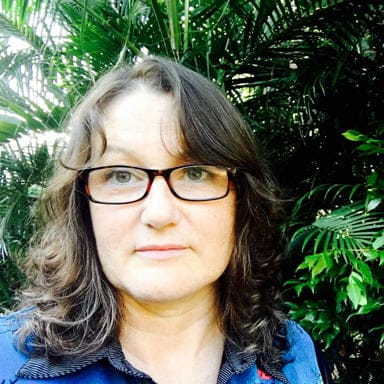
Reflections on the Rights of Nature, Earth Laws, and Earth-centered Governance with Michelle Maloney
Select Season
Listen to this episode: Duration: 46 min.
Quick Overview
In this episode, Dr. Michelle Maloney discusses the need for systems change toward an Earth-centered culture where people re-consider their relationship to the Earth and their place within it. She sees Earth Jurisprudence and Earth Laws as effective tools to help us make this cultural shift and to protect the environment from human destruction. In this conversation she reflects on the shift that needs to take place towards Earth-centred governance, and the role that Earth Laws and Rights of Nature can play in creating the cultural and legal change we need. She discusses the Rights of Nature, and outlines how we’re seeing two ‘branches’ emerging within the laws that recognise nature as a legal entity: the recognition of the rights of nature across an entire jurisdiction, as in Ecuador and Bolivia, and the recognition of the rights of particular ecosystems such as rivers and forests, as in New Zealand and Colombia. She comments on the work of The Global Alliance for the Rights of Nature (GARN), a global organization dedicated to the universal adoption and implementation of legal protection for the Rights of Nature, and on how she sees the relationship between law, economics, education, and ethics. Towards the end of this conversation, Dr. Maloney shares that she sees the Earth Charter as an important tool to help people envision an Earth-centered culture.
Questions and Topics Addressed in this Episode
- What motivates your work protecting the environment and working towards a system change toward an Earth centered culture? What are Earth-centered culture and governance systems?
- What are Rights of Nature, Earth Laws, and Earth jurisprudence? How has this evolved over time?
- Thirty years ago, there was not much talk about the Rights of Nature. Why do you think this has changed, and why is it so important now?
- What are some examples of places that have developed Earth Laws?
- How do human rights, Earth Rights, Rights of Nature, rights to a healthy environment complement each other? What are the similarities and differences?
- How do you respond to people who say that we need to ensure the right to development, to address poverty, and meet people’s basic needs before worrying about the environment?
- How do you see the relationship between law, economics, education, and ethics? Many see them as separate; how do you see them as connected?
- What is the Global Alliance for the Rights of Nature (GARN)? What do they do, and what is the Rights of Nature Tribunal?
- What are the connections between the Earth Charter´s worldview, the rights of nature, and Earth laws? How do you see the Earth Charter informing, supporting, and being used as an ethical foundation for the movement around the rights of nature?
Michelle Maloney

Reflections on the Rights of Nature, Earth Laws, and Earth-centered Governance
Who is Michelle Maloney?
Dr. Michelle Maloney has more than 30 years of experience working on the issues of climate change, sustainability, and community building projects which focus on systems change toward an Earth-centered society. She holds a PhD in Law from Griffith University and undergraduate degrees in Law and Politics from the Australian National University. She began her work exploring Earth jurisprudence and Earth Laws in 2009. She is a co-founder of the Australian Earth Laws Alliance, Future Dreaming Australia, and the New Economy Network Australia. She is a member of the Advisory Council for the Global Alliance for the Rights of Nature and is a member of the IUCN World Commission on Environmental Law. Dr. Maloney lives in Queensland, Australia and is currently working on a book titled Critical Reflections on the Rights of Nature.
This podcast is developed by Earth Charter International as part of our work as UNESCO Chair on Education for Sustainable Development with the Earth Charter.





